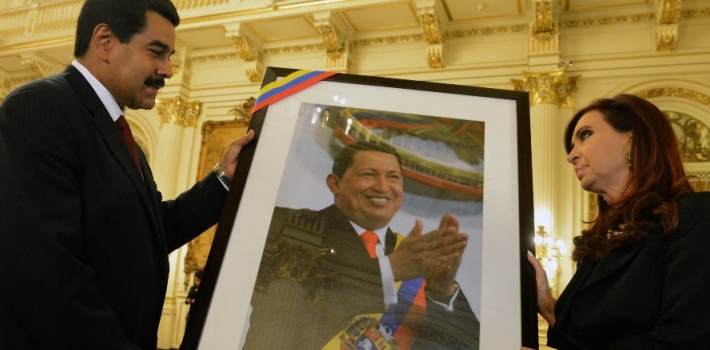Many Argentinean citizens and people abroad are already talking about the beginning of the end for the Kirchner era, and not on account of President Cristina Fernández de Kirchner’s health. (She has just been operated on to drain a brain contusion.) Rather, it is mainly because of the rapid political and economic weakening that the government and the country have endured for two years now, ever since the presidential election.
This weakening, despite the solidarity her recent health issue has generated, is impacting the president and her team in the face of the up-coming legislative elections, on October 27. As correctly noted by the Spanish-Argentinean analyst Carlos Malamud, “most of the polls released on the day after such a huge announcement — Fernández’s new condition — still forecasted a debacle for the ruling party, even bigger than the one experienced last August 11, when the results of the compulsory primaries were made known to the public.”
Those elections marked the end of Fernández’s re-election fantasy and even put her whole political project into question. Among other victories for the opposition, several polls predict seats that are key for the future of the Kirchner regime. Sergio Massa, for example, is expected to defeat the governing party’s candidate, Martín Insaurralde, in the province of Buenos Aires.
The debacle is fed by several issues, including the conflict and divisions within the Peronist movement itself: the popular dissatisfaction with the administration’s poor public management of the economic crisis, inflation, and the mounting loss of currency reserves; the rows among unions; and the many corruption scandals — such as the one featuring as protagonist the vice-president, Amado Boudou, who is now in charge of the presidency due to Fernández’s sick leave.
As one can expect, the deepening of the Kirchner decline also impacts the Argentinean government’s foreign policy and international relations, particularly with her strategic partners in South America. In fact, Argentina is already isolated enough within the hemisphere by virtue of the conflicts that the Kirchner administration has had in the last two years: with the US government over the so-called “vulture funds,” with the Spanish government on the Repsol case, and with the Brazilian and other governments on trade issues.
It could even affect the close and special political and commercial relationship it has had with Chavista Venezuela for a decade. The tension will be exacerbated if the Chavistas endure a comparable electoral defeat in their upcoming municipal elections.
It should be noted that, even excluding surreptitious business among officials from both countries, the Venezuela-Argentina trade has expanded almost 1,000 percent since the beginning of the Kirchner era. That includes areas as diverse as ships, cars, food, re-gasification plants, joint oil exploration adjacent to the Falkland Islands, technology transfer, and medical equipment, among others.
To be sure, both governments have achieved unprecedented trade flows, but these have always been tilted in favor of Argentina. Petróleos de Venezuela (PDVSA) sells Argentina fuels for US$800 million to US$1 billion and covers the freight cost which is then mostly consumed in Brazil. Nevertheless, until early 2013, Argentina owed PDVSA US$1.8 billion dollars for fuel oil and gas oil buys. The debt was renegotiated twice between 2008 and 2012.
Also during the last decade, the Kirchners and Chavistas established a new political interaction and solidarity framework. Their close friendship led Chávez to finance Fernández’s campaign for the presidential elections in 2007. His government’s solidarity with her was even stronger than with her husband. When, in April 2012, President Fernández made the decision to expropriate 51 percent of the oil company YPF, under control of the Spanish firm Repsol, the Venezuelan leader not only welcomed and endorsed the move, but also offered her all of the technical, operational, legal and political expertise of PDVSA.

The Argentinean president always appreciated Chávez’s generosity and friendship, and she richly showed so by endorsing Venezuela’s inclusion in the MERCOSUR, even during Chávez’s illness. She was one of the presidents who went to Havana in January, 2013, to learn first-hand about her friend’s health, and she was the first to arrive in Caracas for the funerals.
One of Nicolás Maduro’s first official trips as interim president was to Argentina, to meet Cristina Fernández. During his visit, they committed themselves to mutual friendship and unconditional support, while signing 12 cooperation agreements that would deepen their bilateral relations. However, these are now subject to the looming fate of both administrations in the next few months.
 Versión Español
Versión Español













